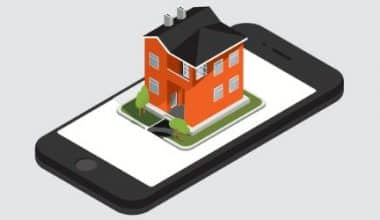Similar to conventional real estate, digital real estate is a kind of property investment that involves holdings that can only be found online. This phrase has gained popularity due to discussions about a virtual reality platform called the Metaverse. Furthermore, individuals and some beginners are investing in digital real estate as it continues to expand and change. This investment doesn’t need a large initial commitment and doesn’t carry the same substantial hazards as other markets. In addition, a digital property’s appreciating value sometimes quintuples in a relatively short period of time, frequently in as little as one year, compared to a physical home or commercial property. In this article, we will also be talking about how to buy digital real estate.
What Is Digital Real Estate?
Digital real estate refers to homes or other structures in a virtual environment, such as a piece of land in the metaverse, a store selling goods in an online game, or a specific conference room in a virtual office.
Like with regular real estate, the goal is to generate money via the sale or lease of the property. However, this investing strategy permits you to generate online passive income. A website or blog is what most people think of when they hear the phrase “digital real estate.” However, real estate on the Internet is not limited to weblogs. And it encompasses a broad variety of assets, such as:
- YouTube Channels: The channel’s videos are monetizable.
- Authority Blogs: The content of these sites is highly focused on a certain field.
- Affiliate Websites: When a visitor to a site makes a purchase of an affiliate product, the recommending site receives a commission.
- Metaverse Land and Assets: This contains digital real estate assets only accessible in the metaverse, such as this $750,000 boat.
You may refer to any “property” that exists online and can be purchased or sold as digital real estate or digital property. Although technically not “real estate,” items like Bitcoin, Ethereum, and other cryptocurrencies may come under this classification as well.
What Is an Example of Digital Real Estate?
Domain names, websites, blogs, digital goods, applications, social media accounts, email lists, NFTs, intellectual property, cryptocurrencies, and more all fall under the umbrella term “digital real estate.” Digital real estate may be thought of as any tradable digital asset. Examples of some of the most well-liked digital assets are included in the list above. However, I thought it would be helpful to provide some instances drawn from actual events.
#1. Websites
Traditional digital real estate consists of websites. Financial resources allocated to website development often provide high returns. Sale proceeds are the source of profit in the absence of physical property. In addition, the most obvious method to make money online is to monetize a website via some kind of advertising or product sales.
#2. e-Commerce Stores
Retailers like Amazon, Etsy, and eBay are just a few of the many that operate in this space. In today’s digital world, the possibilities are endless. Imagine it, and it will be done! That is the simplicity of the matter. Simply make something, post it on Amazon, and forget about stock management issues forever. You just can’t help but gush over the twenty-first century.
#3. Smartphone Apps
The potential for passive and residual revenue from investing in Android or iOS mobile applications is substantial. Investment returns are boosted by both the introduction of a new product and “in-game” purchases.
Digital Real Estate Investment
Many individuals avoid making an investment in digital real estate because they wrongly assume that doing so requires specialized technical knowledge and web design expertise. However, the reverse is actually true. No prior knowledge is required to launch a website and enter the realm of digital property ownership. There is a much lower learning curve for beginners in digital real estate, thanks to modern tools and free software like WordPress. It’s now possible to create a website with a single mouse click.
Digital real estate investment may be obtained in two ways: by creating a new site from scratch, or by purchasing an existing one.
There are advantages and disadvantages to every possible tactic. It’s possible to generate money off of a website you built from scratch with just a modest initial expenditure, but doing so will take a long time and a lot of hard work. While purchasing an established website might be quite expensive, the fact that it is currently generating revenue means that you can start seeing a return on your investment right away.
How to Invest in Digital Real Estate
You can invest in digital real estate in a lot of different ways. Some people call it a “digital world,” “digital land,” “digital island,” and other names, but you need a clear plan to do well in digital real estate.
To aid you in your endeavor, I have set out the many investment opportunities available to individuals and a systematic approach to beginning your collection of digital assets. Having people purchase and read or watch your investment is a key component of these tactics; this is the function digital marketing plays in the development of your digital real estate. However, how do you go about making investments in digital real estate?
#1. Set Up Your Own Blog
Compared to purchasing land or a house, creating a blog is like constructing your own digital abode. Despite the fact that the initial time investment is substantial, one of the key benefits of this sort of company and digital real estate is its low entry barrier.
Furthermore, when you put in the time and effort, the results will start to add up and you’ll gather steam. Your digital asset will expand rapidly over the course of a few months with the aid of digital marketing. Domain names and web hosting are the first things you need to get started on your website or blog. You’ll also need a CMS, such as WordPress, to handle your site’s content.
#2. Buy Digital Real Estate
Buying a blog is an alternative to starting one if you don’t have the resources to develop your own. Some people invest in their very own “digital island” or “virtual world,” treating these “digital assets” as seriously as they would a piece of real estate.
In addition, sites that include a digital or virtual setting sell digital land, homes, and other things. Websites may be obtained from a wide variety of sources, each of which may be more suitable to your specific requirements.
#3. Purchase Social Media Assets
Another approach to digital real estate investment is to purchase a social networking account. You may buy Instagram accounts, TikTok accounts, and YouTube channels, among other things, via companies like Fameswap, SocialTradia, or Toofame.
Furthermore, these platforms will give you a secure environment in which to acquire or sell social media assets, allowing you to boost your revenue-generating activities.
When you purchase a social media account, you have limitless access to a certain demographic and may save a significant amount of money on marketing.
It might be costly to work with social media influencers. Instead of paying for expensive partnerships, you can buy a social media account and use it to market your goods or services to a large, focused audience for free.
Advantages and Disadvantages of Digital Real Estate Investment
Due to the widespread use of computers and other electronic devices, digital real estate is in high demand. However, there are good reasons for this request. The following advantages of digital properties are attracting a flood of investors:
#1. Accessibility
The digital asset is advantageous because of its convenience. It doesn’t matter what your social standing or level of expertise is, you are free to enter and leave the market at will. It’s not exclusive like traditional real estate. Plus, since it’s digital, you can transact business from the convenience of your own couch. An internet-enabled mobile device such as a phone, laptop, or tablet is all that’s required.
#2. Independence
An investment in digital real estate may help you become financially self-sufficient. The vast majority of traders operate outside of the purview of brokers and governments. The freedom to do business as they see appropriate and the absence of interruptions are two benefits they readily accept. There is a remote option for investors. Websites like “My Own Terms” help real estate professionals locate work and network with prospective clients.
#3. Profitability
Quite simply, demand is the only variable that may increase sales and profits. Increasing sales and profits come about when more individuals want a certain item or service. This reasoning suggests that the internet’s popularity is growing as more and more people have access to it. So, investors are taking advantage of the swell of internet users to acquire and sell digital assets for as much as they can get.
Disadvantages
The hype surrounding digital real estate often masks the industry’s underlying flaws. As a result, think carefully about the numerous disadvantages before making any commitments. Consider a few instances of these flaws:
#1. Cyber Insecurity
Cyberattacks can affect anything that can be accessed online. Hackers will do anything to break into your system and change your data, gain unauthorized access, or steal your money. The blockchain real estate market typically faces a higher level of this risk. For this reason, if you’re going to go all in on an investment, you need to implement some basic cybersecurity precautions.
#2. Poor Regulation
Neither control nor regulation exists in the digital real estate market. When the government doesn’t step in at all, businesses are free to cheat, steal, and otherwise abuse their position in the market. If you aren’t careful, digital real estate scammers can make you lose everything you own.
#3. An Absence of Predictability
The scope of the Internet is enormous. Considering the variety of options, it’s difficult to foresee the next step. Due to their overlap and complexity, some current developments in digital real estate are at odds with one another. As a result, keeping up with developments and determining whether a property constitutes true digital real estate is becoming more challenging for investors.
Digital Real Estate Beginners
Real estate in a digital reality may be purchased by anyone using a VR headset, including beginners. You may own things like billboards, buildings, and petrol stations that are really just pieces of this so-called “real estate.” However, due to the fact that these properties are only seen in online games, they are quite different from the actual estate you are used to seeing.
To begin with, the price of digital real estate is very unstable, much like the price of the majority of cryptocurrencies so beginners should be aware of that.
How to Invest in Digital Real Estate for Beginners
The low entry price of digital real estate is only one of its many benefits for beginners. In other words, if you put in the time and effort, you may transform a modest investment in real estate into a lucrative enterprise.
This, of course, doesn’t mean you won’t face any obstacles at all on your path to digital property ownership. You need to have a strong plan and put in the work upfront to avoid pitfalls. So, to invest in digital real estate for beginners follow these steps.
#1. Get a Digital Wallet
To purchase physical or digital land or property, you will need cryptocurrency. The most well-known metaverse, Decentraland, accepts MANA as payment for virtual property transactions. The second biggest by market value, Sandbox, employs SAND. Most newcomers to cryptocurrency start with Metamask, but I recommend Elastos Essentials instead.
However, remember to record your seed phrase somewhere secure. You must keep in mind that we are dealing with crypto. Your financial stability is entirely in your own hands. The importance of this topic is discussed in detail in a post we’ve made.
#2. Select a Platform
Purchase some cryptocurrency on an exchange and exchange it for the native token of the platform you have decided to purchase land on after doing your research and making your decision.
As a beginner, you have the option of purchasing your digital property directly on their site or via a third party like OpenSea. It may be simpler for new users to estimate the price of anything on these sites since you can see how much money it converts to in dollars.
#3. Buy Your Land
Buying land in this virtual world is easier than buying actual properties. There may be room for haggling and bids, depending on the site, but other than that, it’s a simple procedure.
Can You Make Money With Digital Real Estate?
As a matter of fact, some people’s only source of income comes from trading in and out of websites and domain names. Websites and domains may fetch substantial sums of money on the market. Indeed, you can profit from investing in cyberspace.
How To Buy Digital Real Estate
The land is pricey. This is a harsh truth that many of us confront. It’s not London, New York, or Paris. Some of the world’s most precious land isn’t even on earth—and it’s fake. Go meta. Yes, investors are paying millions for land in 3D virtual worlds. As the contest heats up, crypto fans, tech fans, and future metaverse users are snapping up digital assets.
The same rules that apply to NFT transactions also apply to the purchase and sale of digital land. In a typical situation, this wouldn’t pose too much of a challenge. For starters, most metaverse platforms are accessible through desktop platforms, providing prospective land purchasers with an overview of the market and key data such as land availability, area, price, amenities, and past sales and transactions. (Frogbones) In order to ensure a smooth transaction, please complete these procedures on how to buy digital real estate.
#1. Create a Cryptocurrency e-Wallet
Most metaverses need bitcoin transactions. Your virtual money and digital assets will need a digital wallet. Wallet choice depends on the metaverse platform. Use a web-based digital wallet for the greatest experience on how to buy digital real estate. MetaMask and Binance Chain Wallet are leading wallets. Make sure your crypto wallet supports the virtual project’s money. Metaverse platforms describe which are recommended and how to connect them.
Also read, Trust Wallet: Overview, Tokens, How to Use Trust Wallet
#2. Buy Cryptocurrency
In order to buy digital real estate, you will need a sufficient amount of your metaverse’s in-platform money, as indicated in the preceding section. Popular cryptocurrencies like $MANA, $SAND, and $ETH are all readily available for purchase on exchanges like Binance, Coinbase, and KuCoin.
#3. Select a Metaverse
If you don’t have a specific plan in mind for your digital property, it’s a good idea to look at your alternatives. Popular marketplaces like Decentraland and Sandbox provide digital land for sale in exchange for digital tokens like MANA and SAND. In different metaverses, there may be more or less land. The next step is to do some basic research on how to buy digital real estate, including finding out the asking price, the total square footage, and who the current owner is.
#4. Confirm Your Purchase
When you’re ready to buy digital real estate, you may do so via the marketplace (or a third-party platform) with only a few clicks after loading up your virtual wallet with the necessary funds. Your NFT will be available in your wallet after the real estate transaction is finalized. Furthermore, the land’s title will be changed to your name. Just like that. You now have the option of keeping your property for an extended period of time, developing it further, or reselling it (hopefully at a higher price).
Who Are Digital Realty’s Largest Customers?
You can purchase land or other items in these virtual worlds or video games. These virtual worlds, like the real world, are built using NFT houses, or you can buy a single NFT flat in an NFT building.
What does Digital Realty sell?
Data center, colocation, and connectivity solutions are offered by Digital Realty Trust, Inc., a real estate investment trust. Artificial intelligence (AI), networks, clouds, digital media, mobile, financial services, healthcare, and gaming are among the sectors it supports.
Who Are Digital Realty Largest Customers?
Over 4,000 clients are served by Digital Realty Trust, and they come from a variety of industries, including social media, IT, finance, and telecommunications. Giants like Facebook, Oracle, Verizon, IBM, JPMorgan, LinkedIn, AT&T, and many more are among its biggest clients.
Who Are Digital Realty Largest Customers?
You can purchase land or other items in these virtual worlds or video games. These virtual worlds, like the real world, are built using NFT houses, or you can buy a single NFT flat in an NFT building.
What does Digital Realty sell?
Data center, colocation, and connectivity solutions are offered by Digital Realty Trust, Inc., a real estate investment trust. Artificial intelligence (AI), networks, clouds, digital media, mobile, financial services, healthcare, and gaming are among the sectors it supports.
Who Are Digital Realty Largest Customers?
Over 4,000 clients are served by Digital Realty Trust, and they come from a variety of industries, including social media, IT, finance, and telecommunications. Giants like Facebook, Oracle, Verizon, IBM, JPMorgan, LinkedIn, AT&T, and many more are among its biggest clients.
Conclusion
Digital real estate could be a great way for investors and businesses to increase their profits and find new ways to make money. There are many different ways to start investing in digital real estate since there are so many options. Digital real estate makes it possible for anyone to make money online by making a website, buying a domain name, or making digital items.
Digital Real Estate FAQs
What is digital property?
To put it simply, digital property is any information about you or generated by you that exists digitally, either online or on an electronic storage device, together with the information essential to access the digital asset.
What is digitized real estate?
Digitalized real estate includes a piece of land in the metaverse, an online game business, or a virtual office conference room.
What is metaverse real estate?
In the metaverse, ownership records are kept in the form of an NFT, or non-fungible token, using blockchain technology (ledger).
Similar Posts
- LOT LOANS: Every Thing You Should Know
- How To Buy Land: Step-by-step Guide
- LAND LOAN: Things to Consider Before Buying and How to Get One
- Trust Wallet Review 2023: Is Trust Wallet Safe? (Updated!!!)






